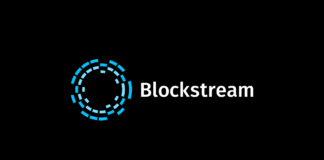The Danish Financial Supervisory Authority (DFSA) has recently made headlines with its plans to tighten regulations on the cryptocurrency industry. At the forefront of these changes is the DFSA’s intention to eliminate the use of unhosted Bitcoin wallets within the country. This move, which aligns with the upcoming Cryptoasset Market Regulations (MiCA) framework in the European Union, has sparked significant debate and controversy within the crypto community.
Understanding Non-Custodial Crypto Wallets
Non-custodial cryptocurrency wallets, also known as self-custodial wallets, are digital wallets where the user maintains full control over their private keys. This means that the user, rather than a third-party service provider, is responsible for the security and management of their digital assets. These wallets offer users the ability to act as their own personal bank, with the added benefits of faster transactions and the absence of custodial fees.
Related Read: Solana ETF News: VanEck and 21Shares Submit Applications to SEC
The DFSA’s Regulatory Stance on Bitcoin Wallets
The DFSA’s updated guidelines on decentralized finance (DeFi) require all crypto service providers, including interface and mobile app developers, to operate under strict regulations. This includes crypto exchanges and trading platforms, which will no longer be able to offer Bitcoin wallets, decentralized exchange (DEX) interfaces, or other crypto-related services to Danish users unless they receive regulatory approval in Denmark.
The DFSA’s actions are in line with the upcoming Cryptoasset Market Regulations (MiCA) that will soon be partially implemented across the European Union. The European Banking Authority (EBA) has recently finalized technical standards under MiCA, ensuring that EU firms meet strict financial requirements, such as own funds adjustments, liquidity provisions, and strict recovery plans for crypto asset issuers.
The MiCA regulations have significant implications for stablecoins, particularly those pegged to the US dollar. Stablecoin issuers like Tether and Circle will need to obtain the necessary e-money licenses by the end of June 2024 to operate legally within the EU.
Some market analysts have argued that these new regulations are overly restrictive and could potentially lead to the phasing out of digital assets. Mikko Ohtamaa, who reported on the ban in question in Denmark, suggested that MiCA’s rules may be aimed at effectively banning cryptocurrencies by imposing excessive controls.
The nature of the MiCA regulations has sparked heated discussions within the cryptocurrency sector. With the imminent implementation of the EU MiCA laws, some major crypto platforms, such as Bitstamp and Binance, have already taken steps to delist certain stablecoin products or suspend services for European users.
Related Read: Unraveling the Hanoi Crypto Scam: A Billion-Dollar Deception Exposed
DFSA’s Clarification on the Proposed Ban
Contrary to the widespread social media reports, the DFSA has since clarified that it has not proposed a ban on self-custodial cryptocurrency wallets. Tobias Thygesen, the DFSA’s director for fintech, payments services, and governance, stated that the regulator has not suggested any such ban and that the misinformation circulating online is incorrect.
Exemption of Self-Custodial Wallets from MiCA
The DFSA’s clarification highlighted that MiCA explicitly exempts crypto-asset services “provided in a fully decentralized manner without any intermediary.” As such, self-custodial wallets, such as hardware wallets, are not subject to regulation under MiCA, as they do not involve the custody of crypto-assets on behalf of clients.
While self-custodial wallets are exempt from MiCA, the DFSA noted that some software wallets may provide integrated interfaces to fully decentralized services in addition to their wallet services. In such cases, these integrated services could potentially be independently regulated by MiCA if they are not provided in a fully decentralized manner.
Ensuring Awareness of Potential Regulatory Requirements
The DFSA’s assessment aimed to increase awareness of potential regulatory requirements for crypto-related services in Denmark. The regulator emphasized that it is open to dialogues to help determine whether specific offerings in Denmark fall within the scope of MiCA or not.
The regulation of decentralized finance (DeFi) services presents unique challenges for regulators, as the inherent decentralized nature of these platforms often blurs the lines of traditional financial oversight. The DFSA’s approach highlights the ongoing efforts to strike a balance between fostering innovation and ensuring appropriate regulatory safeguards.
Conclusion
The DFSA’s actions and the impending implementation of the EU’s MiCA regulations have undoubtedly created a complex and evolving landscape for the cryptocurrency industry in Europe. While the initial reports of a proposed ban on Bitcoin wallets in Denmark were inaccurate, the broader regulatory environment remains a topic of intense scrutiny and debate within the crypto community. As the industry continues to evolve, navigating the nuances of decentralized finance and striking the right balance between innovation and oversight will be a critical challenge for regulators and market participants alike.
FAQ on Denmark’s ban on Bitcoin wallet
What are non-custodial cryptocurrency wallets?
Non-custodial wallets give users full control over their private keys, allowing them to manage their digital assets securely without relying on third-party services.
How are Denmark’s crypto regulations changing?
Denmark’s DFSA plans to tighten regulations on crypto services, requiring providers to operate under strict guidelines. Bitcoin wallets and other crypto-related services will need regulatory approval.
What are the implications of MiCA regulations?
The upcoming MiCA regulations in the EU will impact stablecoin issuers, crypto platforms, and service providers, with strict financial requirements and potential licensing obligations.
Are self-custodial wallets exempt from MiCA?
Yes, self-custodial wallets like hardware wallets are exempt from MiCA regulations as they do not involve custody of crypto-assets on behalf of clients.













